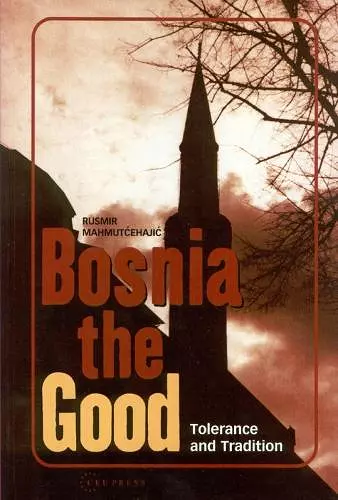Bosnia the Good
Tolerance and Tradition
Format:Hardback
Publisher:Central European University Press
Currently unavailable, and unfortunately no date known when it will be back

Bosnia the Good is an indictment of the partition of Bosnia, formalized in 1995 by the Dayton Accord. This unequalled volume is a plea from one of Bosnia-Herzegovina's most prominent dissidents appealing for Bosnia's communities to reject ethnic segregation and restore mutual trust. The author argues for the history and reality of a Bosnia-Herzegovina based upon a model of 'unity in diversity'. He shows that ethnic and religious cultures co-existed in Bosnia for centuries and that Croatian and Serbian leaders determined to enact their own nationalist programs are to be blamed for the conflicts that devastated a nation. He points out the decisive moment when the international community accepted the Serb/Croat argument that ancient ethnic hatreds were endemic to Bosnia and that ethnic segregation became not only acceptable but desirable. He examines the reasons why Western liberal democracies have regarded with sympathy the struggles of Serbia and Croatia for national recognition, while viewing Bosnia's multicultural society with suspicion. Bosnia the Good confronts the religious dimension of the Bosnian dilemmas from the perspective of a Bosniak committed to inter-religious dialogue. The author argues that the only way Bosnia will reclaim its unique civilization is more than simple tolerance among Serbs, Croats and Bosnians. They have to recognize that Judaism, Christianity and Islam all share the same deity and it is this common transcendent perspective that should open the door to the acceptance and celebration of religious diversity. Bosnia is at present divided and shaken to its foundations, but the author argues it could become a model for European progress. The greatest danger is for Bosnia to be declared just another ethnoreligious entity, in this case a 'Muslim State' ghettoized inside Europe. If protected and allowed to develop however, the author explains how Bosnia could find a place in a new European order.
"Bosnia the Good is an appeal both for the survival of Bosnia and for a historic opening of religions to one another. The book combines the symbolic retrieval of heritage with a vision of an Islam that would open onto and embrace (while not absorbing) the religious other. It exposes the depth of the difficulties facing Bosnia because of its diversity, even as it argues for seeing this apparent curse as Bosnia's deepest promise. It is a book of interest not only for the study of Bosnia but for the engagement of similar issues of religion, society, and violence now facing much of the world." * Slavic Review *
ISBN: 9789639116863
Dimensions: unknown
Weight: unknown
260 pages